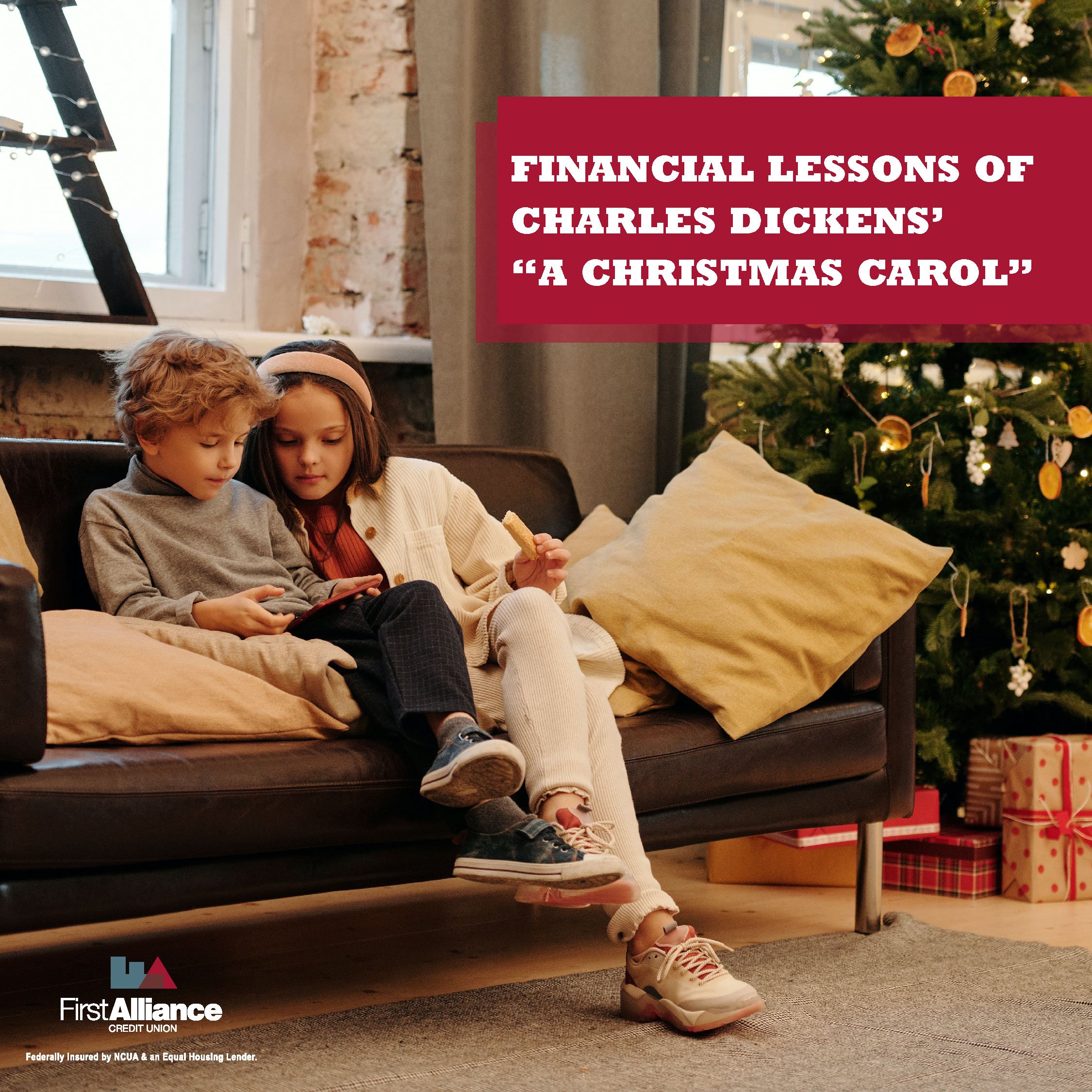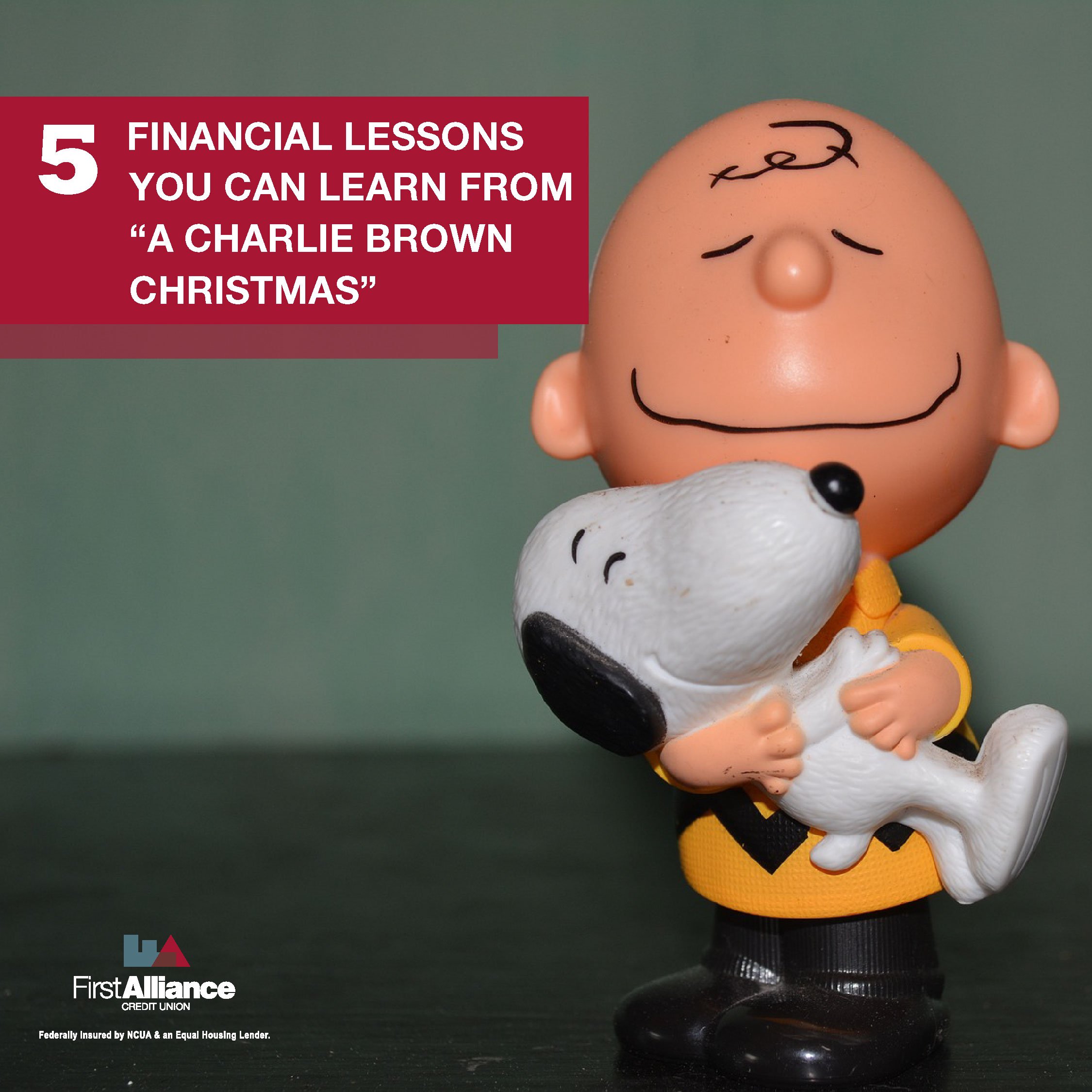5 Financial Lessons You Can Learn From “A Charlie Brown Christmas”
Out of all the holiday television specials making their way across the airwaves this December, “A Charlie Brown Christmas” stands above them all....
3 min read
 Chris Gottschalk
:
Dec 11, 2018 6:50:00 AM
Chris Gottschalk
:
Dec 11, 2018 6:50:00 AM

One of the most famous Christmas stories of all time has to be Charles Dickens’s “A Christmas Carol.” Ever since Dickens published the book in 1843, audiences have thrilled to the telling of Ebenezer Scrooge’s redemption at the hands of four ghosts. Despite the countless adaptations, reexaminations and parodies that flood the airwaves during the Christmas season, it never seems to grow old.
In addition to being a compelling story, though, A Christmas Carol also offers some financial lessons, which is fitting, since Scrooge is such a miserly old man. Also fittingly, these lessons can help enrich your life, as well as your bank account.

Scrooge has almost no positive qualities before his ghostly encounters. He does have one quality, however, that is admirable—he has a clear financial goal in mind. Granted, “get as much money as possible” isn’t the noblest goal in the world, but is it really that different from the person saving for their retirement fund or the person putting aside money for their college fund?
Scrooge is far from the only character with this goal. The Crachits combine their meager funds to fulfill their goal of a nice Christmas dinner, and the two men who visit Scrooge trying to raise money for charity have a financial goal as well.
A lot of people find themselves struggling financially because they don’t have a clear financial goal. They don’t know what they should set money towards, and as a result they waste money on trinkets instead of concentrating on what really matters to them.
Speaking of what really matters, A Christmas Carol also shows the benefit of being judicious with what you have. The Crachits, for example, are very judicious with the 15 shillings a week Scrooge pays Bob Crachit, which amounts to $93 by today’s standards. They don’t have much, but somehow the Crachits are able to afford a house, food and clothes for the seven people in their family.
This is a good lesson to learn. Far too often, even if you’ve got a clear financial goal in mind, you can get sidetracked by sales and deals—especially during the holiday season! Instead, ask yourself if what you want is actually going to get you closer to your goals, or if it’s just a temporary diversion.
Now, you might be wondering why Scrooge himself isn’t listed as an example of financial judiciousness. The answer is simple: he is NOT judicious with his money. He spends it on nothing—not even himself.
This makes everyone around him miserable, particularly Bob Crachit, who spends Christmas Eve in a freezing little office fueled by, at best, one lump of coal. The thing is, though, Scrooge doesn’t spend any money on himself, either. He lives in the house Marley used to live, he lights only one room in the house, and his Christmas Eve dinner is a bowl of gruel.
One of the most tragic things about Scrooge is that he has all this money, and he won’t even use it to make himself comfortable, let alone happy. He’s hardly alone in this, though—a lot of people refuse to spend money on things that matter, even if that would make their lives easier. They only see the cost of visiting the eye doctor, not the benefits that could come with 20/20 vision.
Instead, spend your money on what matters to you. At least invest in your own health and comfort, not to mention your family’s.

When Marley, wrapped in his chains, comes to visit Scrooge, he says he created the chains himself as a result of his greed and selfishness, and that his punishment as a ghost is to walk the earth, seeing the people he could have helped but now being unable to. At the end of Marley’s visit, he and many other ghosts in chains wail in remorse at their helplessness as they try in vain to help a homeless woman and her son—something they could have easily done when they were alive.
Don’t let this happen to you. The odds are pretty good you won’t spend your afterlife as a chained ghost lamenting your stinginess if you don’t meet some arbitrary level of generosity, but among the top regrets people have on their deathbed is that they focused too much on working and money and not enough on their relationships. If your financial affairs are in order, why not donate some money to a charity or volunteer at a soup kitchen?
The biggest change in Scrooge after his ghostly visitations is his generosity. He raises Bob Crachit’s salary and lets him buy more coal, but he also makes a very generous donation to the two gentlemen who were collecting for charity the day before.
Scrooge’s generosity also enriches everyone around him in other ways. The best example of this is that Tiny Tim doesn’t die, as the Ghost of Christmas Yet to Come foretold. However, his newfound generosity makes his nephew’s life better, and it improves the lives of the whole Crachit family.
Wealth isn’t just about finances, it’s about being part of a community, whether it’s Rochester, Minnesota, the United States or the world. It’s a value we take seriously at First Alliance.
Contact us if you’d like to learn more about setting financial goals, spending judiciously or making sure you have enough money for the things that matter most to you. Our team of expert advisors can help you discover more ways to save, invest and even donate your money. They will be happy to discuss all the savings options at your disposal and help you select the ones that are right for you.

Out of all the holiday television specials making their way across the airwaves this December, “A Charlie Brown Christmas” stands above them all....

One of the multiple signs that the holidays are upon us is the sudden proliferation of holiday specials on TV and streaming. It’s no exaggeration to...

In the world of superheroes, Tony Stark, aka Iron Man, stands out from the rest. Instead of being super strong or firing energy bolts at people,...